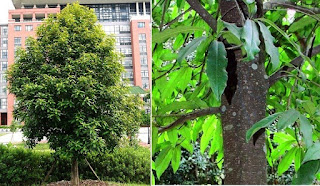HOẠT TÍNH ỨC CHẾ PROTEINAZA CỦA DỊCH CHIẾT POLYPHENOL TRONG CÂY GỖ VANG (TÔ MỘC) CAESALPINIA SAPPAN L.
Authors: Nguyễn Minh Thắng
Phạm Thị Trân Châu
Sappan wood (Caesalpina sappan L.) has been used as traditional medicine in Vietnam and other Asian countries for hundreds years. Phenolic compounds are involved in plant physiological and different pharmacological processes. Therefore, we analyse some phenolic compounds in different parts of C. sappan: heartwood, bark, seed coat and study their effect on some serine proteinases as well as on the growth of P. aeruginosa and S. aurens . The obtained results indicated that: Total polyphenol content (EtOH extract) of bark, heartwood, dormant seed coat, unripe seed coat are found to be equal: 96.84; 58.99; 51.94 and 21.40 (mg/g of dry matter) respectively. Although the polyphenol content of heartwood is lower than of bark, but the total flavonoid percentage of the former makes up around 75% of the total polyphenol, while that of the latter is only 27.48% and of seed coat is from 3 - 9%. All these phenolic extracts and total flavonoid fractions of the studied samples show inhibitory activity against trypsin (TIA), Chmotrypsin (ChIA), and proteinase isolated from P. aeruginosa. However, the strongest inhibitory activity has been found in dormant seed coat, the "specific activity" (mIU//mg polyphenol or mg flavonoid) of seed coat is higher than that of other samples a dozen of times. Testing an antimicrobial activity of all samples indicates that: only the total polyphenol extract and flavonoid fraction from heartwood inhibit the growth of S.aureus. By using silicagel thin layer chromatography method, at least 12 bands from heartwood polyphenol or flavonoid fraction are detected, and almost all these bands possess TIA, ChIA, PPsIA. In case of seed coat there are only 6 bands, one of them shows mobility corresponding with gallic acid band...
Chi tiết bài viết mời các bạn tham khảo tại:
http://repository.vnu.edu.vn/handle/VNU_123/11569




Nhận xét
Đăng nhận xét